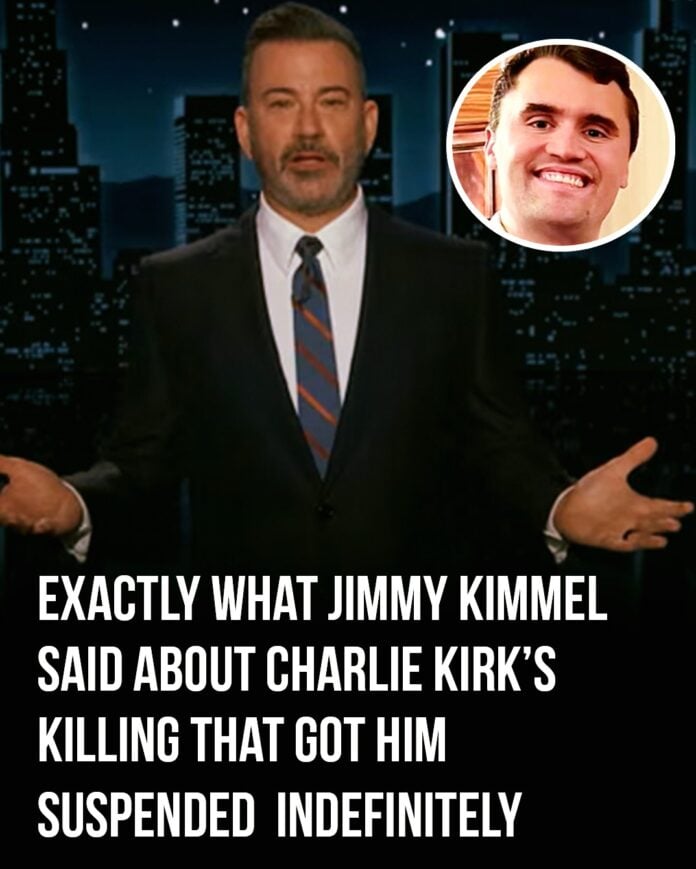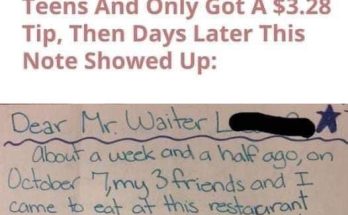Last Updated on September 18, 2025 by Grayson Elwood
For more than two decades, Jimmy Kimmel has been a familiar face in American living rooms. His late-night talk show, Jimmy Kimmel Live!, blended comedy, celebrity interviews, and political commentary into a nightly ritual for millions of viewers. But this week, ABC stunned audiences by announcing that the program would be pulled “for the foreseeable future.”
The announcement came after controversial remarks Kimmel made earlier in the week sparked outrage across the media landscape. While many fans expressed disappointment, President Donald Trump, currently on a state visit to the United Kingdom, praised the network’s decision, describing Kimmel as “a loser” and celebrating the end of his run on television.
The news has ignited debate across the country, raising questions about free speech, political influence in media, and the future of late-night television in America.
The Sudden End of a Late-Night Staple
Wednesday evening marked what may be the final episode of Jimmy Kimmel Live!—a show that first premiered back in 2003 and grew into a cultural touchstone. ABC, along with its partner Nexstar Media Group, confirmed that the program would be preempted indefinitely.
In an official statement, Nexstar explained:
“Nexstar’s owned and partner television stations affiliated with the ABC Television Network will preempt Jimmy Kimmel Live! for the foreseeable future beginning with tonight’s show.”
The company cited strong objections to Kimmel’s remarks earlier in the week concerning the tragic death of conservative activist Charlie Kirk. While ABC did not provide details about what might replace the talk show, affiliates across the nation have already begun reshuffling their programming schedules.
For many older viewers, the news comes as a shock. Kimmel had become part of late-night tradition, much like Johnny Carson, Jay Leno, or David Letterman before him. To see a program vanish overnight—without a farewell, without a final monologue—feels like the abrupt closing of a familiar chapter in American entertainment.
The Controversial Remarks That Sparked the Firestorm
The backlash stems from comments Kimmel made during his Monday night broadcast. Speaking about the killing of Charlie Kirk, the talk show host criticized both conservative figures and President Trump for their responses.
Kimmel accused political groups of twisting the tragedy for their own benefit. He also mocked the decision to lower flags to half-mast in Kirk’s honor, questioning the sincerity of such gestures. In one of his sharpest remarks, he compared Trump’s response to the grief of a child who had just lost a goldfish.
These comments were met with immediate outrage from conservative leaders and viewers alike. Critics accused Kimmel of crossing a line, arguing that he mocked not only Trump but also the grieving process itself. Within hours, clips of the segment were circulating widely online, fueling heated debates about the role of comedy in addressing sensitive events.
Political Pressure and Media Backlash
As the controversy grew, pressure mounted on ABC affiliates. FCC Chairman Brendan Carr condemned the host during an interview, warning that television stations could face fines or even license revocations if they continued to air Jimmy Kimmel Live! in light of what he described as “a pattern of news distortion.”
Carr’s comments sent a clear message: networks could face serious consequences for standing by the late-night host. By Wednesday, Nexstar and ABC affiliates had announced their decision to suspend the program indefinitely.
For a television industry already under scrutiny, the threat of federal intervention added fuel to the fire. Broadcasters often walk a fine line between protecting free speech and avoiding regulatory backlash, and Kimmel’s remarks placed them in an especially difficult position.
Trump Celebrates the Cancellation
Donald Trump has never been shy about criticizing television personalities. Over the years, he has called out late-night hosts ranging from Stephen Colbert to Seth Meyers, often accusing them of being biased, unfunny, or “ratings-challenged.”
On Wednesday evening, while in the UK for a state visit alongside First Lady Melania Trump, the president shared his thoughts on Truth Social.
“Great News for America,” Trump wrote. “The ratings-challenged Jimmy Kimmel Show is CANCELLED. Congratulations to ABC for finally having the courage to do what had to be done. Kimmel has ZERO talent, and worse ratings than even Colbert, if that’s possible. That leaves Jimmy and Seth [Myers], two total losers, on Fake News NBC. Their ratings are also horrible. Do it NBC!!!”
For Trump, the cancellation was not only a personal victory but also a symbolic one. The president has long battled with what he calls “mainstream media bias,” and the removal of one of his most outspoken critics seemed to validate his position.
Was It Truly the End?
While Trump and his supporters cheered the decision, the story may not be over just yet. According to The Hollywood Reporter, Kimmel had been preparing to address the controversy on Wednesday night’s show before it was abruptly cancelled.
The publication noted that Kimmel planned to clarify his remarks, emphasizing that they had been taken out of context. However, he reportedly had no intention of issuing an apology.
Whether ABC will eventually reinstate the program or replace it permanently remains uncertain. For now, viewers are left in limbo, unsure if they have seen the last of Kimmel behind the desk.
The Larger Question: The Future of Late-Night Television
The drama surrounding Jimmy Kimmel highlights a larger shift in the entertainment world. For decades, late-night talk shows served as cultural cornerstones, mixing humor with commentary on the day’s events. Icons like Johnny Carson and Jay Leno brought Americans together with laughter after long days.
But in today’s polarized climate, the role of late-night television has changed. Instead of uniting viewers, hosts often become lightning rods for political debates. Programs that once offered a lighthearted escape now find themselves at the center of controversy.
For older audiences who remember the days of variety shows, musical guests, and family-friendly comedy, the constant political sparring can feel exhausting. Many are asking: has late-night television lost its way?
What This Means for Viewers
For longtime fans of Jimmy Kimmel Live!, the cancellation is bittersweet. Some viewers appreciated Kimmel’s sharp political humor and willingness to challenge authority. Others found his approach disrespectful, preferring the lighter style of earlier late-night legends.
Regardless of opinion, one fact remains: the television landscape is shifting rapidly. Streaming services, on-demand content, and digital media are drawing younger viewers away from traditional television. Networks are under pressure to adapt, and controversial decisions—like removing a flagship talk show—may become more common as broadcasters try to protect ratings and advertising revenue.
For senior viewers, who often form the backbone of traditional TV audiences, these changes can feel disorienting. Shows that once felt permanent are disappearing almost overnight, replaced by programming designed to chase new demographics.
The sudden removal of Jimmy Kimmel Live! is more than just a media headline. It represents a clash between entertainment, politics, and free speech—one that touches on deeper questions about what Americans expect from their television screens.
Donald Trump may be celebrating the cancellation, but the larger story is still unfolding. Will ABC permanently part ways with one of its most recognizable stars? Or will Kimmel find a way back on air, clarifying his words and rebuilding his reputation?
For now, audiences across the nation are left to wonder whether they have truly witnessed the end of an era in late-night television.



